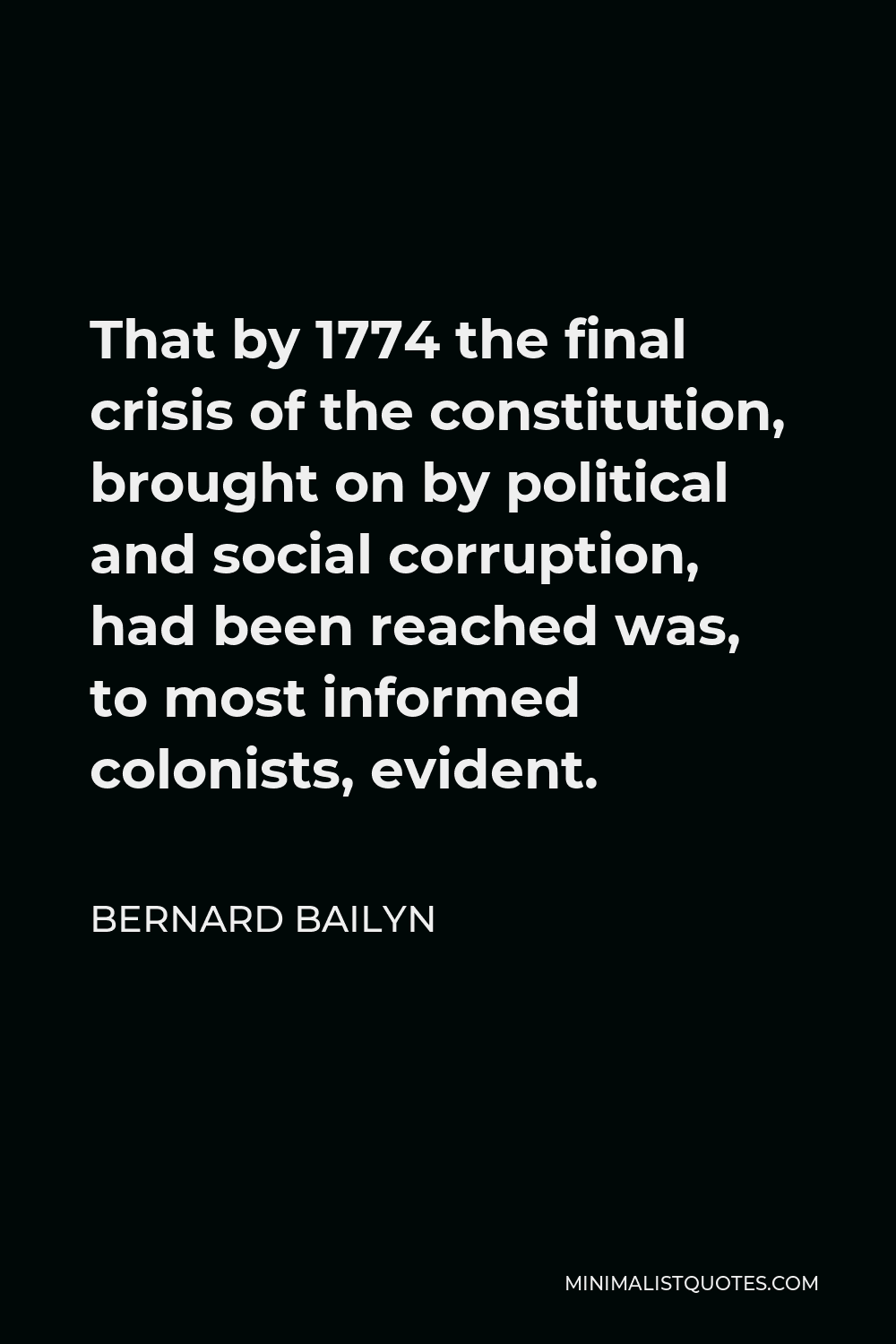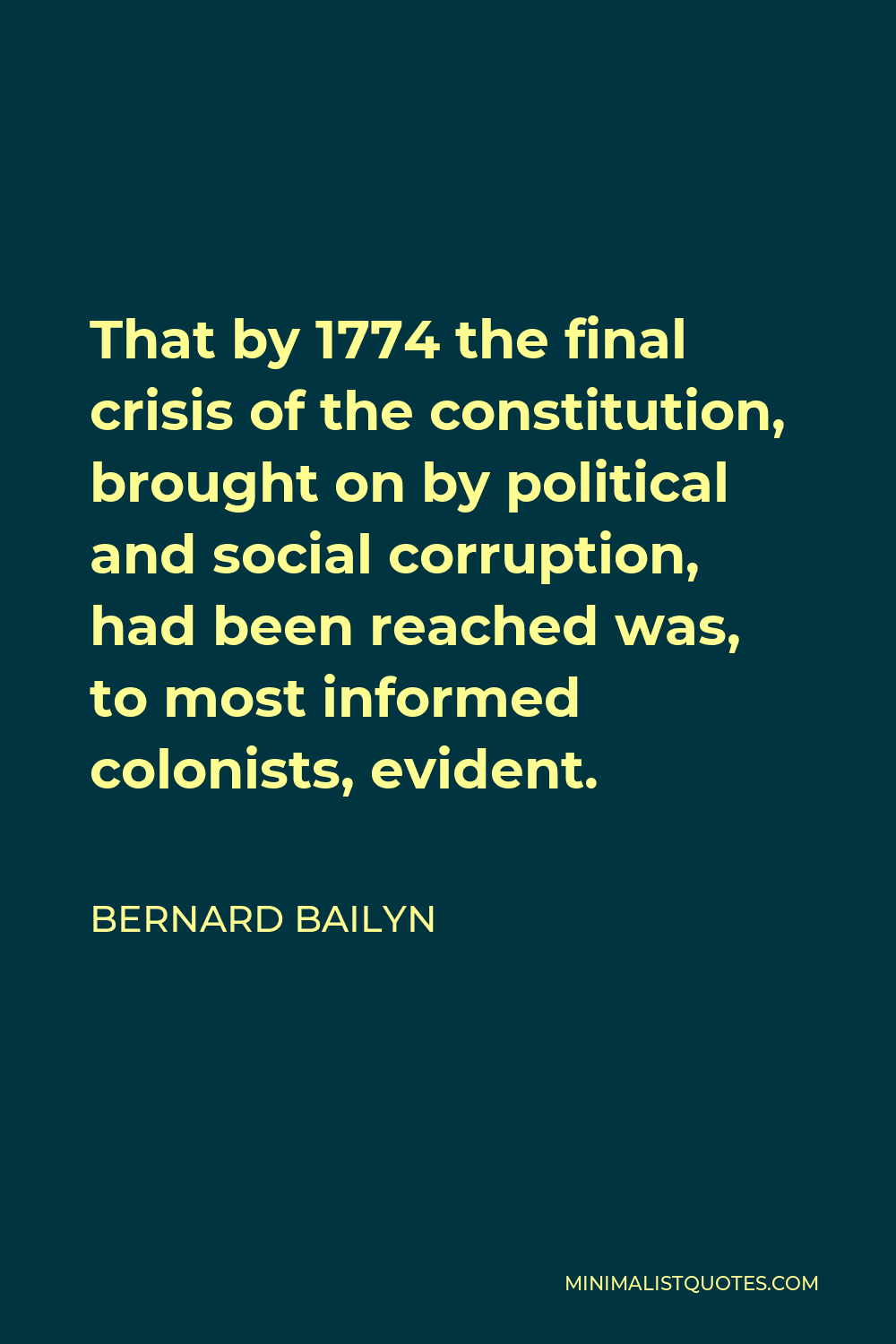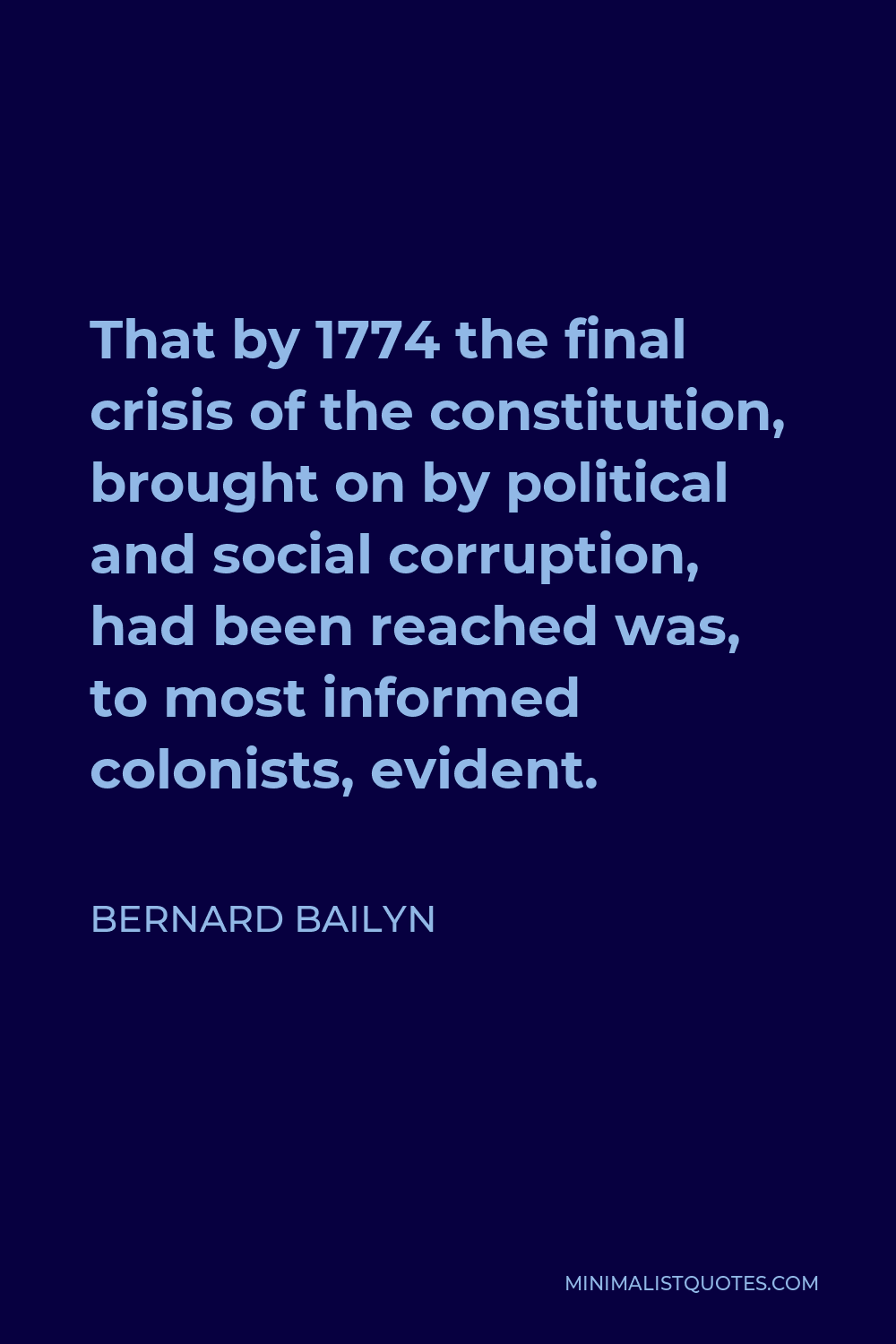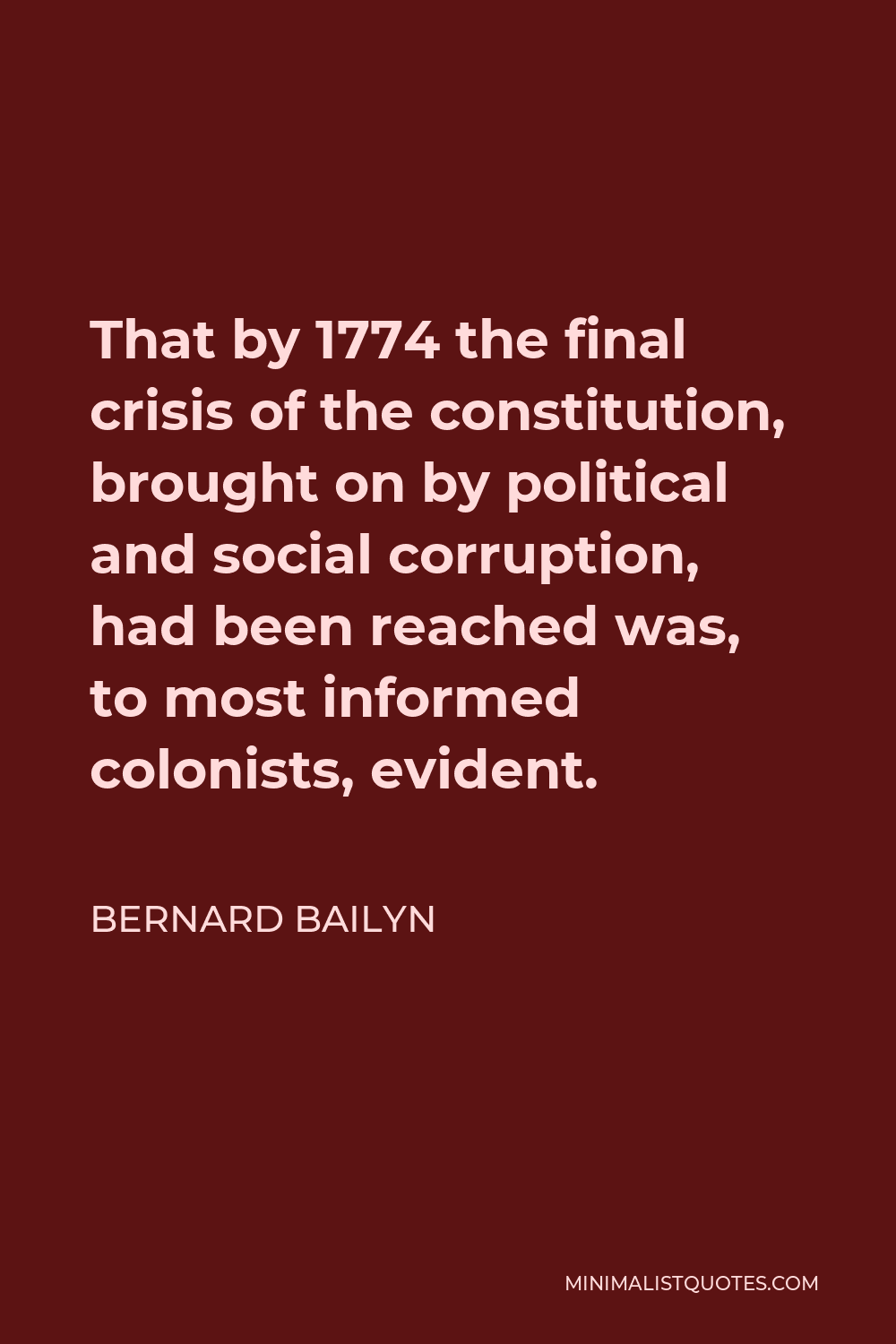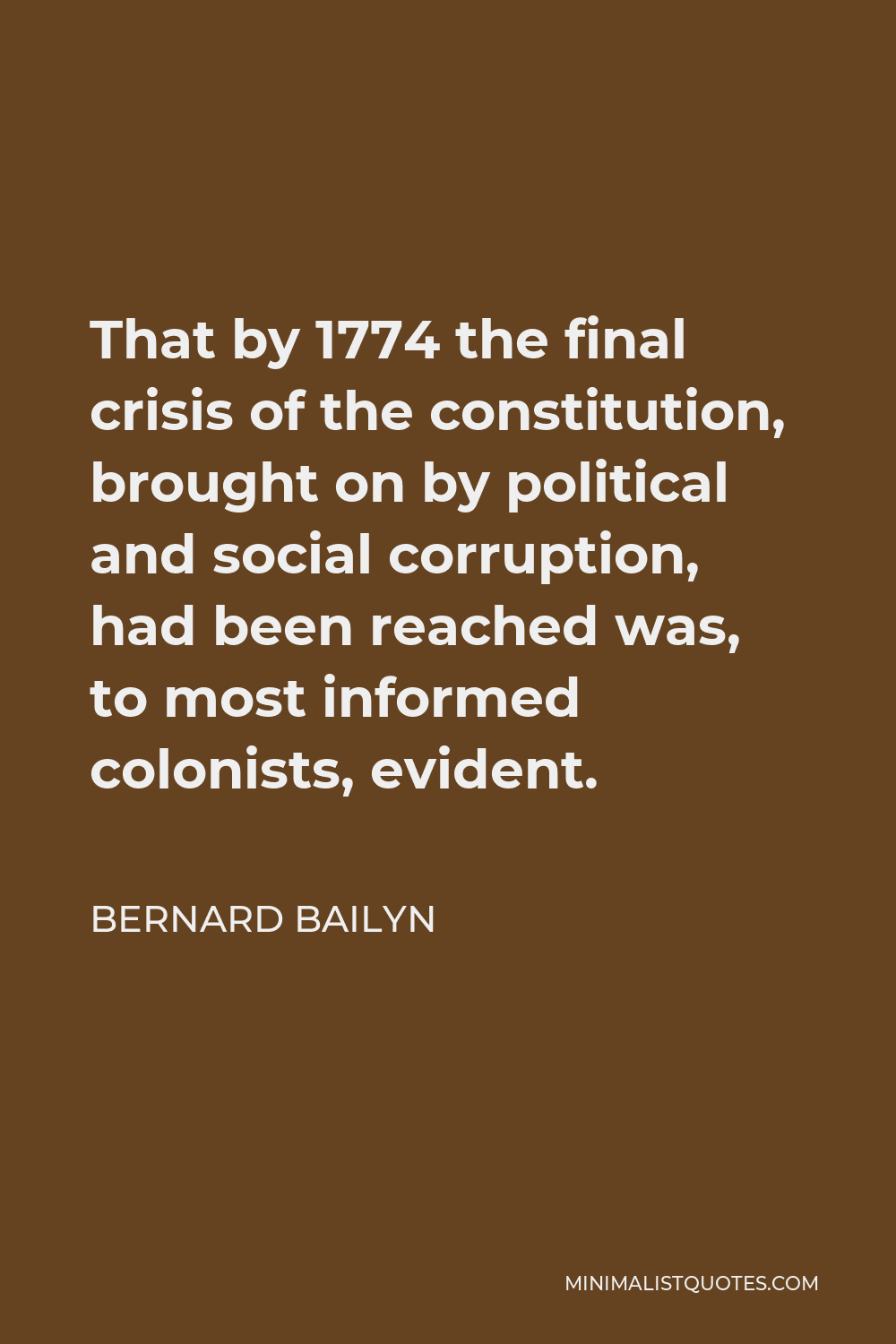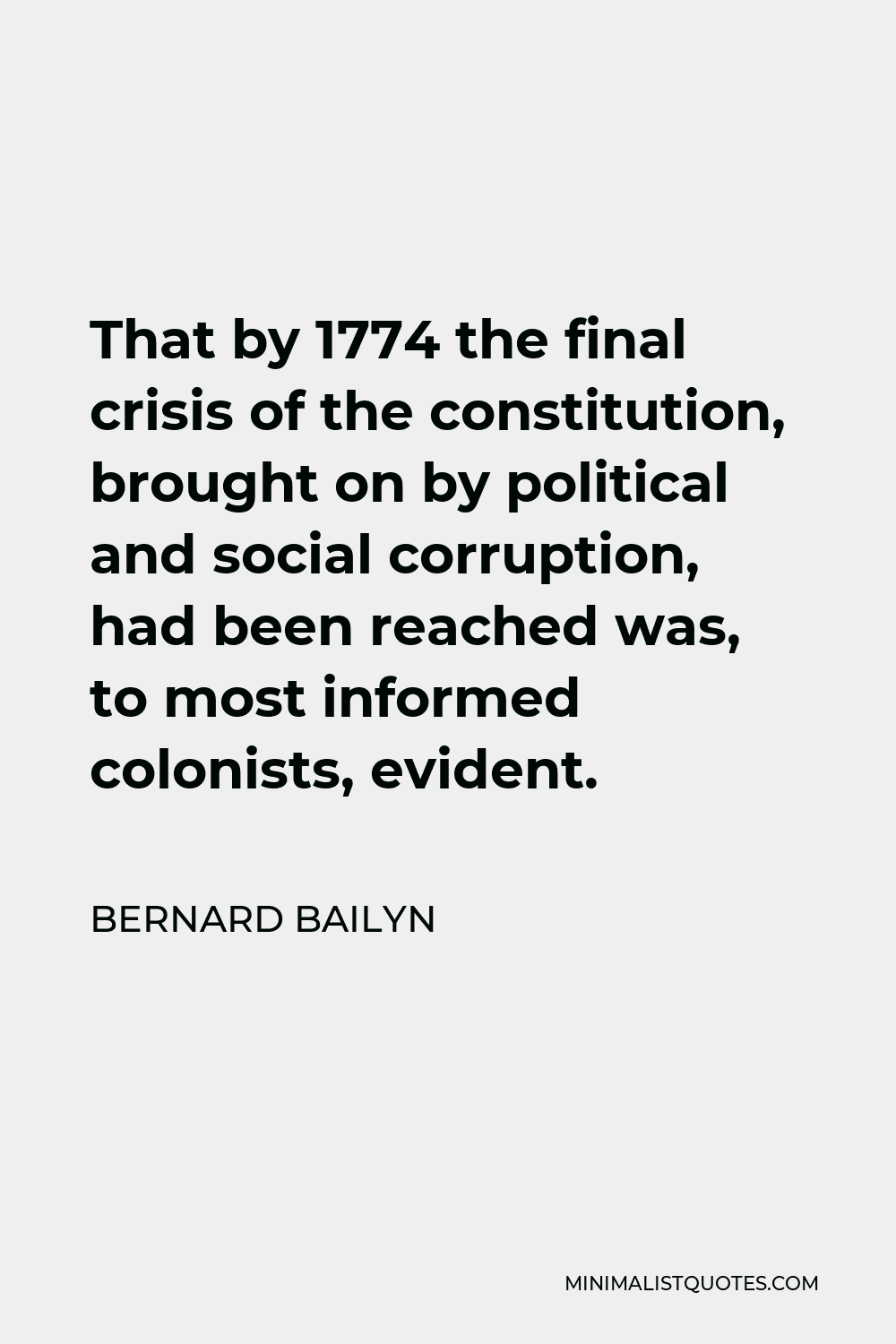What gave transcendent importance to the aggressiveness of power was the fact that its natural prey, its necessary victim, was liberty, or law, or right.
BERNARD BAILYNThat by 1774 the final crisis of the constitution, brought on by political and social corruption, had been reached was, to most informed colonists, evident.
More Bernard Bailyn Quotes
-





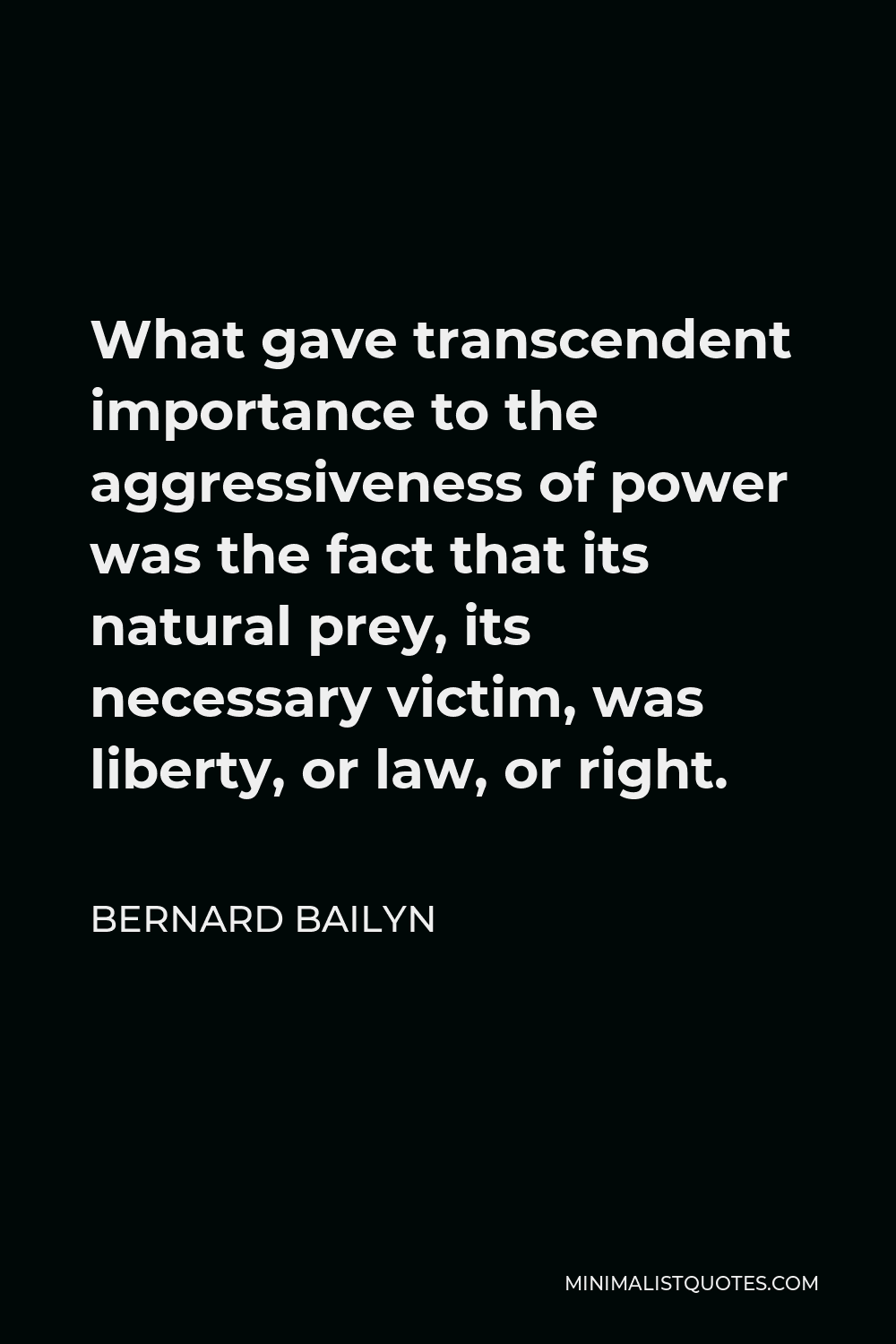
-





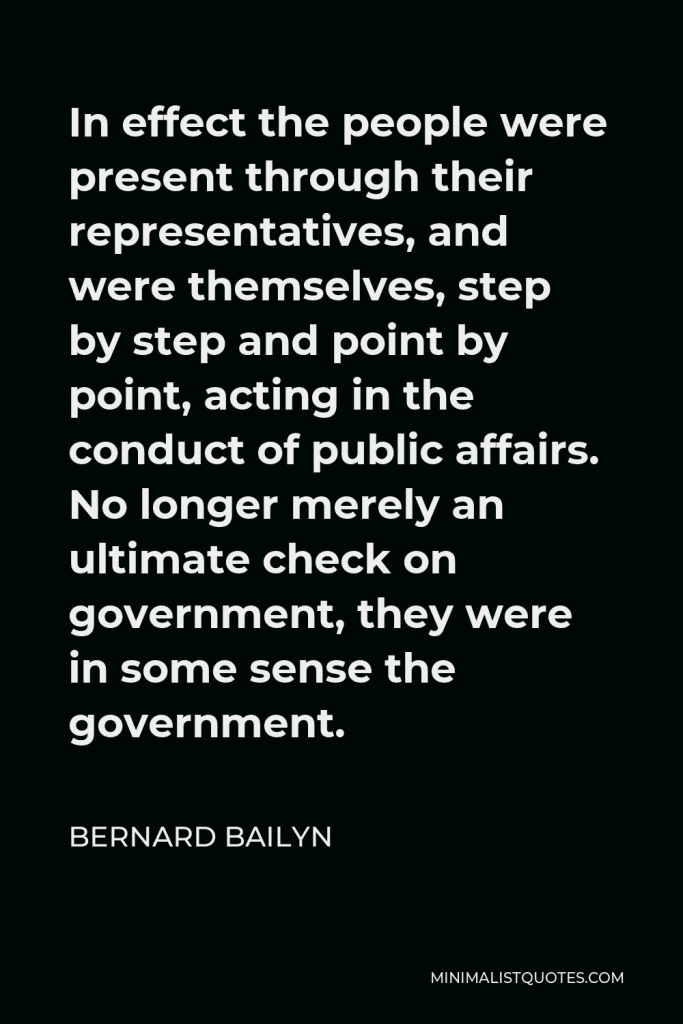

In effect the people were present through their representatives, and were themselves, step by step and point by point, acting in the conduct of public affairs. No longer merely an ultimate check on government, they were in some sense the government.
BERNARD BAILYN -





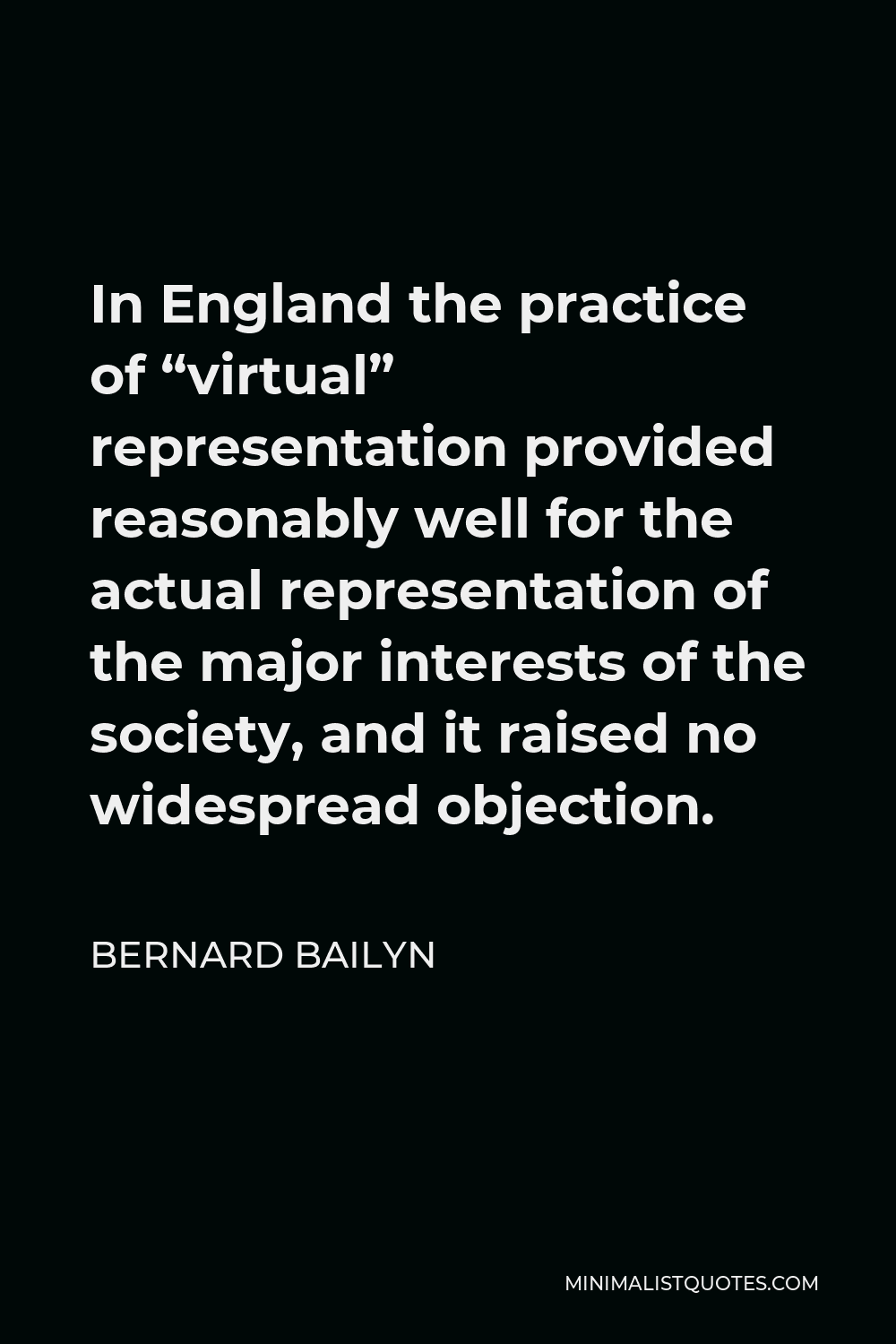
In England the practice of “virtual” representation provided reasonably well for the actual representation of the major interests of the society, and it raised no widespread objection.
BERNARD BAILYN -






The wielders of power did not speak for it, nor did they naturally serve it. Their interest was to use and develop power, no less natural and necessary than liberty but more dangerous.
BERNARD BAILYN -






The full bibliography of pamphlets relating to the Anglo-American struggle published in the colonies through the year 1776 contains not a dozen or so items but over four hundred.
BERNARD BAILYN -





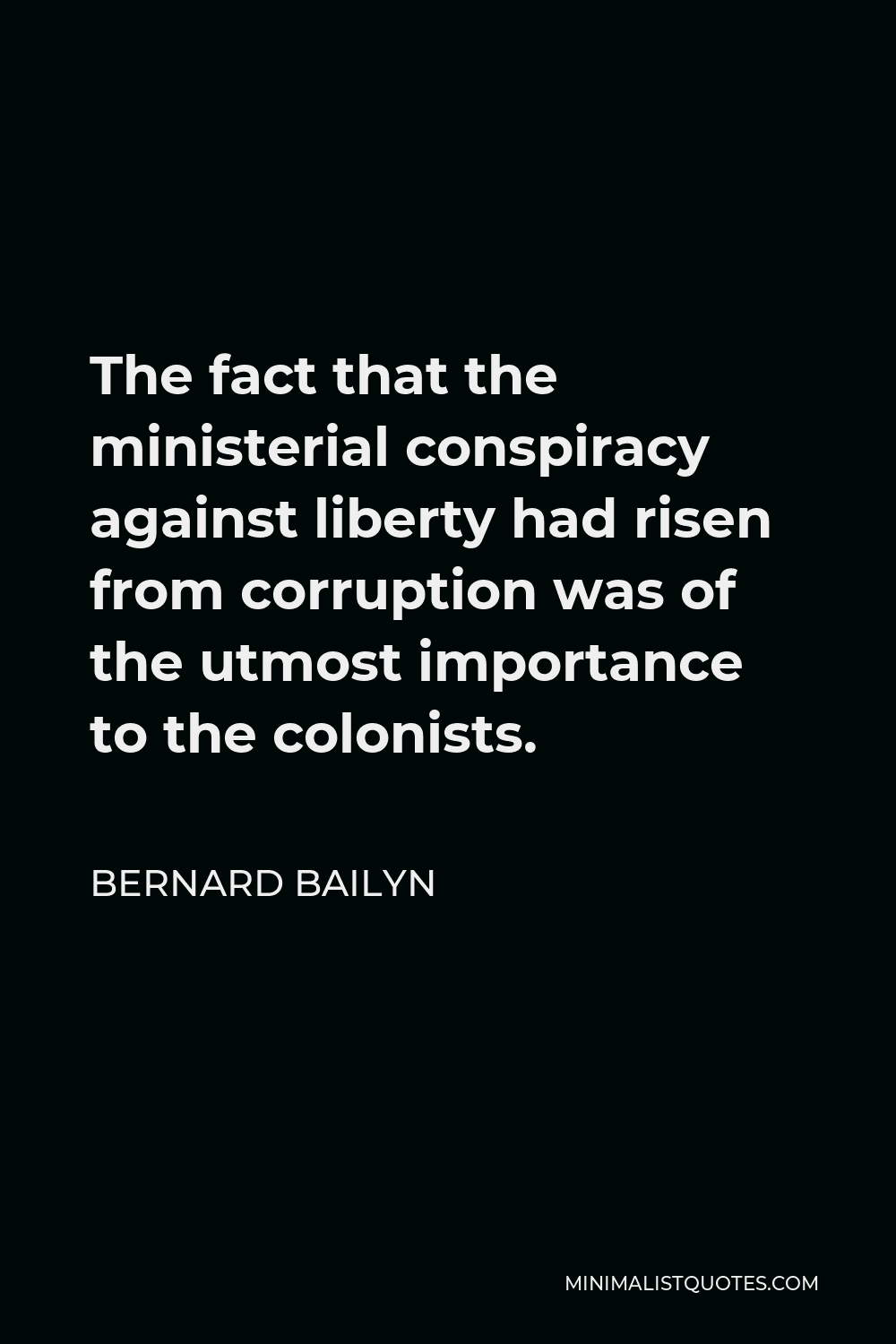
The fact that the ministerial conspiracy against liberty had risen from corruption was of the utmost importance to the colonists.
BERNARD BAILYN -





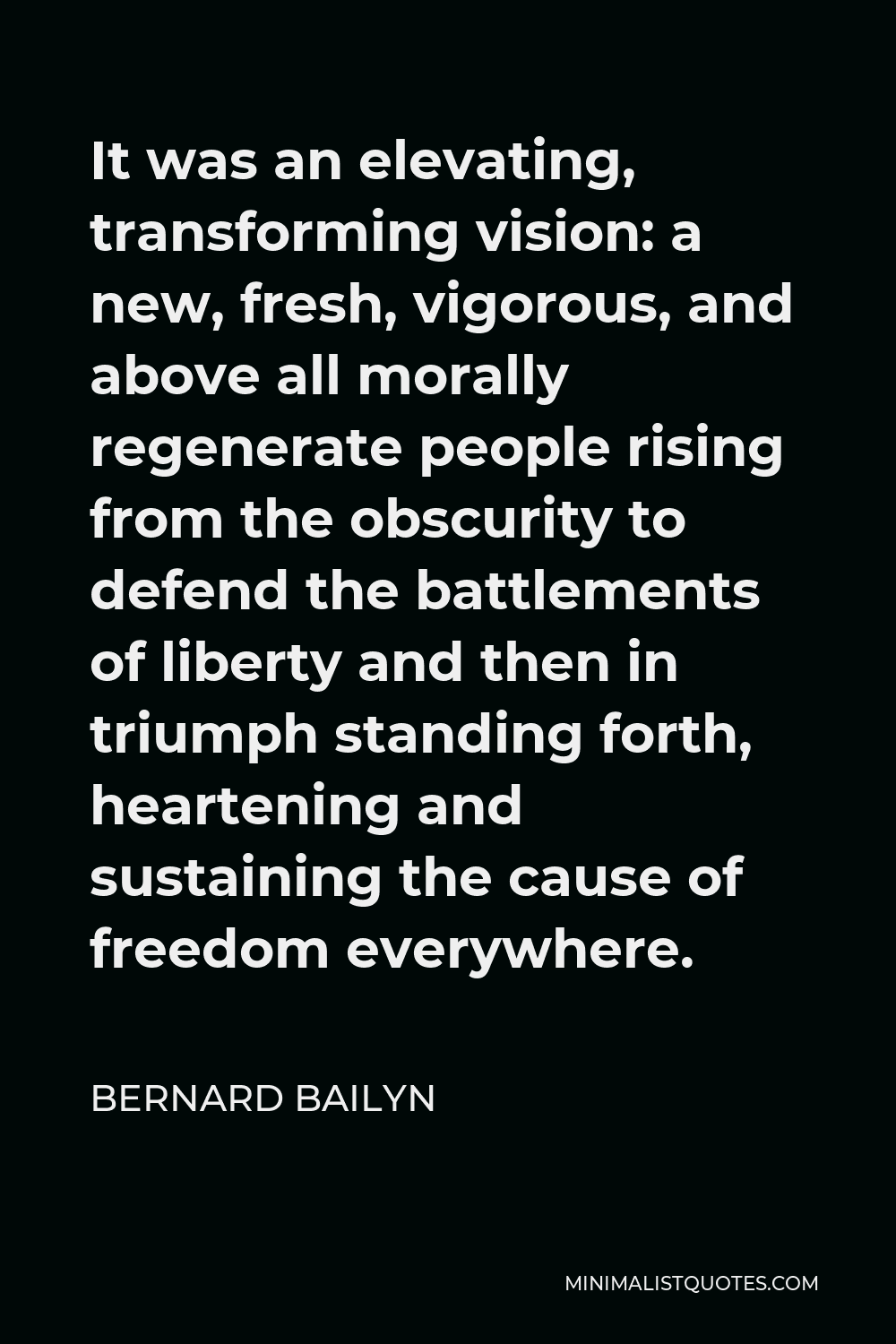
It was an elevating, transforming vision: a new, fresh, vigorous, and above all morally regenerate people rising from the obscurity to defend the battlements of liberty and then in triumph standing forth, heartening and sustaining the cause of freedom everywhere.
BERNARD BAILYN -





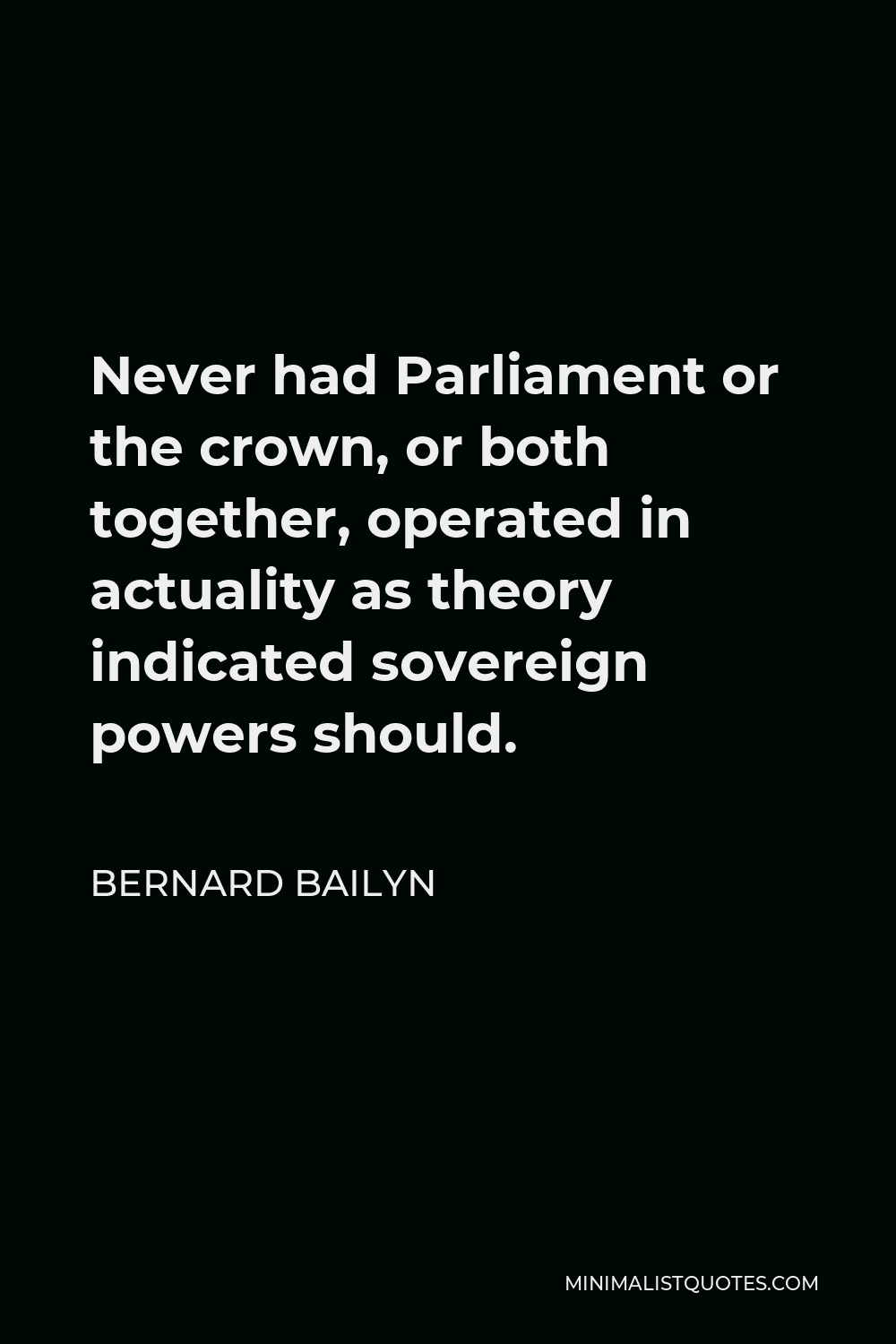
Never had Parliament or the crown, or both together, operated in actuality as theory indicated sovereign powers should.
BERNARD BAILYN -






Incorporating in their colorful, slashing, superbly readable pages, the major themes of the “left” opposition under Walpole, these libertarian tracts.
BERNARD BAILYN -







Defiance to constituted authority leaped like a spark from one flammable area to another, growing in heat as it went.
BERNARD BAILYN -





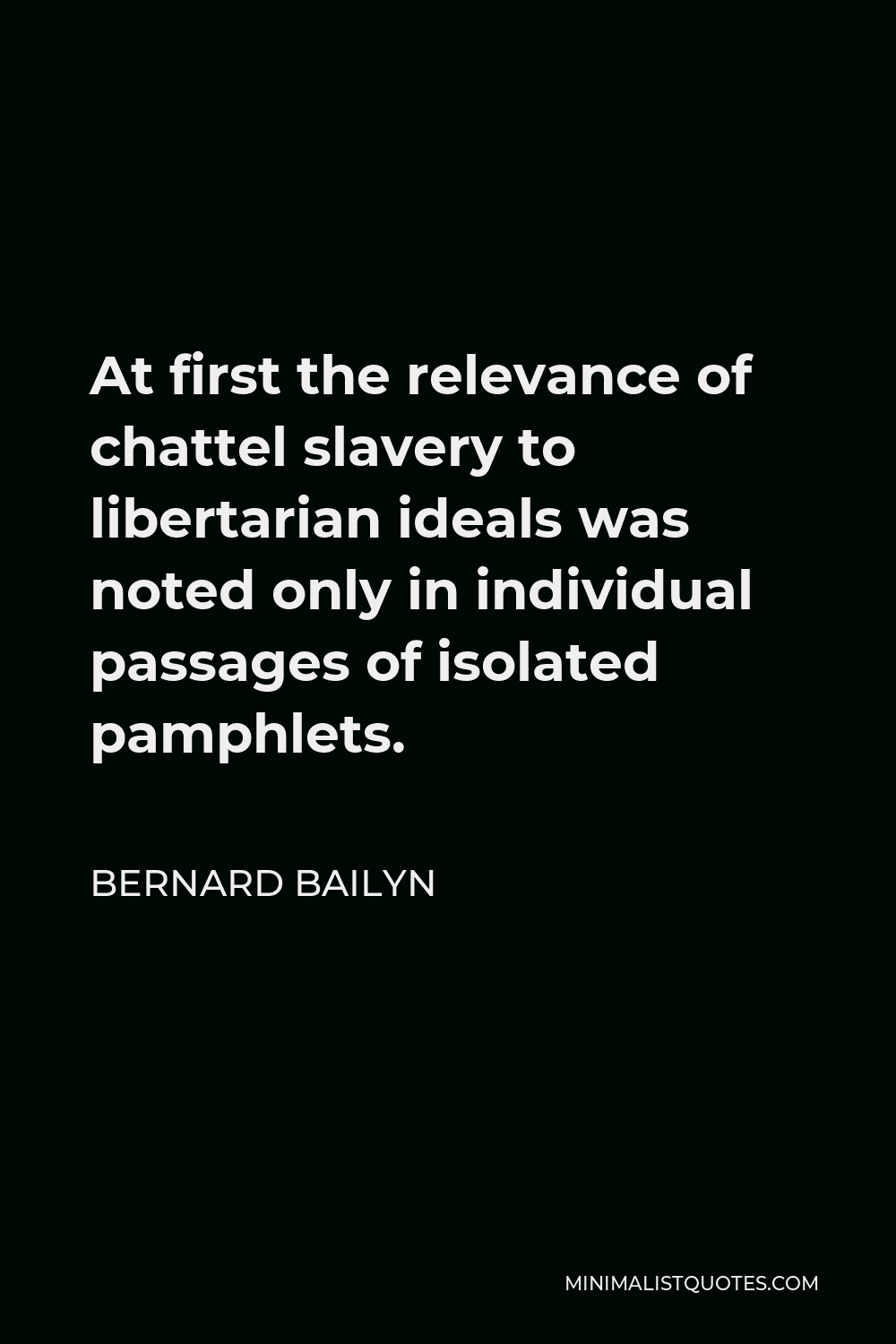
At first the relevance of chattel slavery to libertarian ideals was noted only in individual passages of isolated pamphlets.
BERNARD BAILYN -






Emerging first in the form of denunciations of standing armies in the reign of William III, left an indelible imprint on the “country” mind everywhere in the English-speaking world.
BERNARD BAILYN -





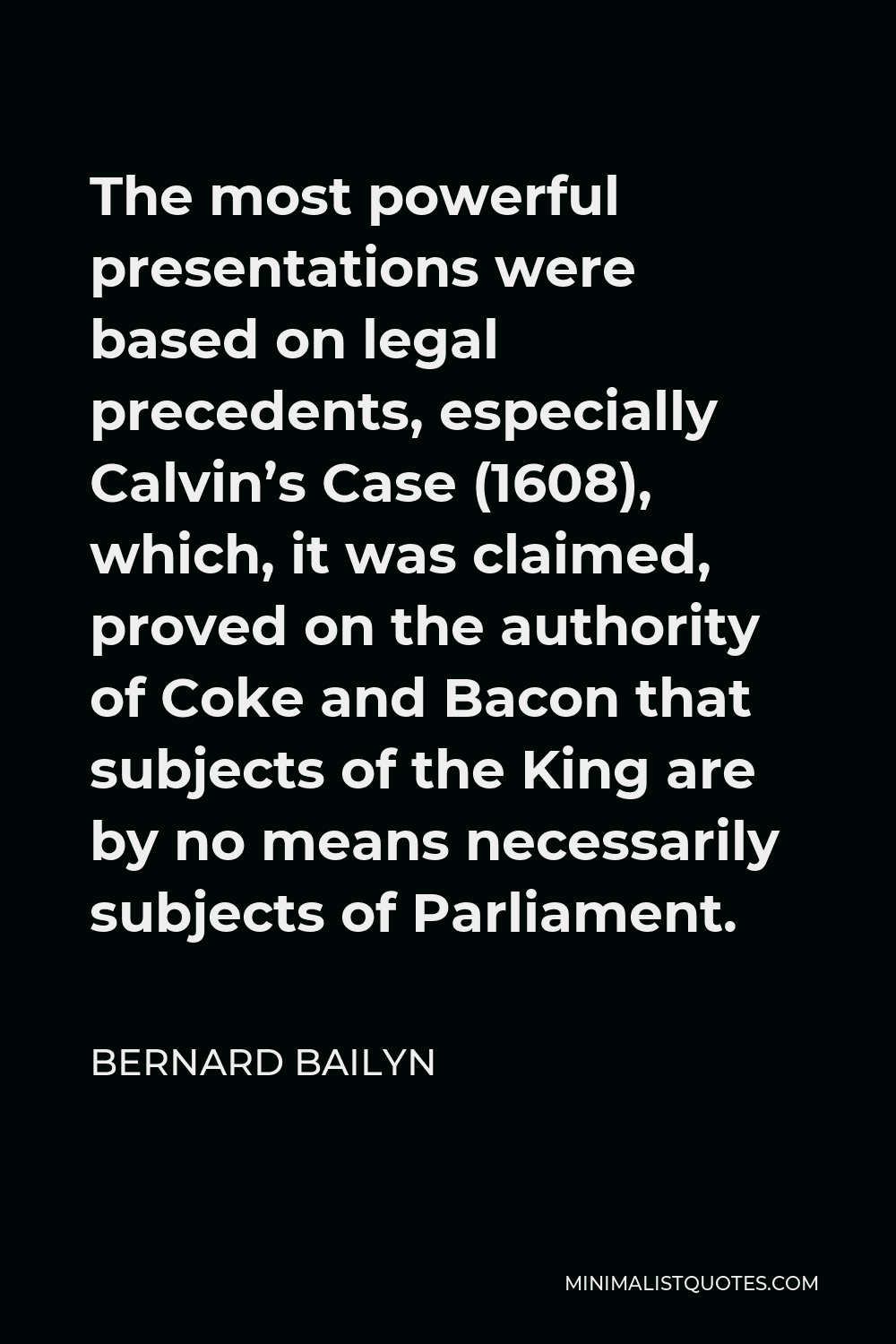
The most powerful presentations were based on legal precedents, especially Calvin’s Case (1608), which, it was claimed, proved on the authority of Coke and Bacon that subjects of the King are by no means necessarily subjects of Parliament.
BERNARD BAILYN -






The categories within which the colonists thought about the social foundations of politics were inheritances from classical antiquity, reshaped by seventeenth century English thought.
BERNARD BAILYN -





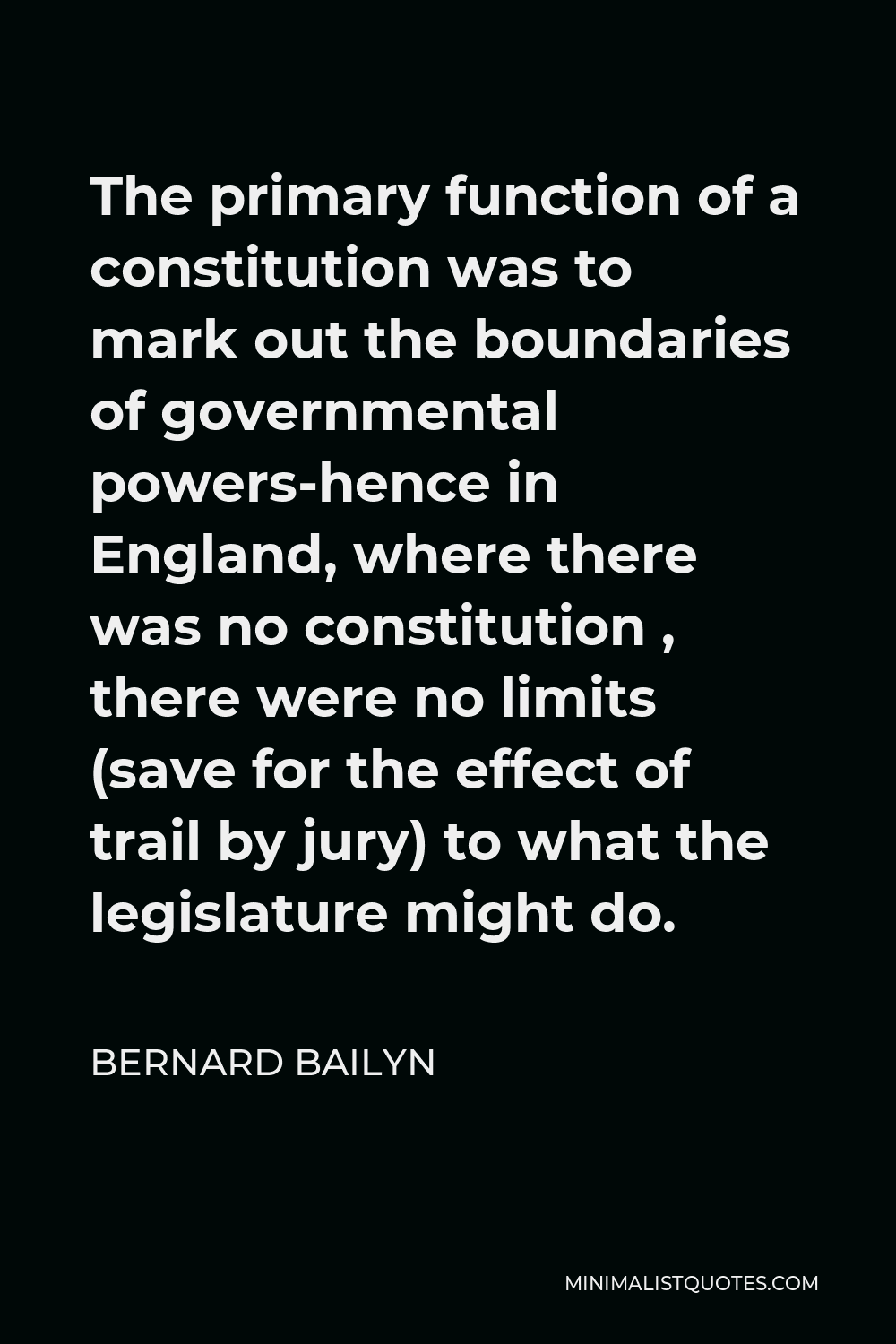
The primary function of a constitution was to mark out the boundaries of governmental powers-hence in England, where there was no constitution , there were no limits (save for the effect of trail by jury) to what the legislature might do.
BERNARD BAILYN -






Whatever deficiencies the leaders of the American Revolution may have had, reticence, fortunately, was not one of them.
BERNARD BAILYN
